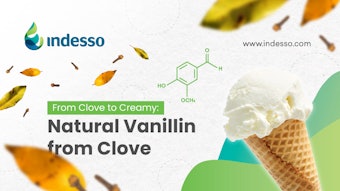
An in vitro study published in the Journal of Dietary Supplements, demonstrated Blue California’s ErgoActive ergothioneine helped to preserve telomere length and reduced the rate of telomere shortening under oxidative stress.
Telomeres are complex protein structures located at the end of each DNA strand, protecting chromosomes from becoming damaged. When DNA strands are frayed or worn down, cells are challenged with performing specialized functions, thus making the protection offered by telomeres critical for the life of cells.
Previously: Blue California Unveils Natural Destination Flavors Collection 2021
Shortened telomeres are associated with many chronic conditions such as cancer, cardiovascular disease and diabetes.
The in vitro study is the first time ergothioneine has been studied for its effect on telomere length. Blue California provided its ErgoActive ergothioneine, which is produced via fermentation process.
Ergothioneine is a naturally occurring amino acid with potent antioxidant properties that the body does not make but obtains from dietary sources such as specific species of mushrooms, beans and oat bran. However, for most people, the dietary consumption of foods rich in ergothioneine tends to be low.
Previously: Blue California Creates Natural Preservative
“Our results suggest that ergothioneine, as part of a healthy diet, could potentially mitigate the negative effects of oxidative stress and support healthy aging by helping to preserve telomere length and reduce the rate of shortening,” said chief science officer, Dr. Priscilla Samuel.
“Many areas of health are impacted by oxidative stress during aging, including longevity, bone health, cardiovascular health, cognition and skin vitality,” added Samuel. “As oxidative stress accelerates the shortening of telomeres, antioxidants such as ergothioneine may help to decelerate it.”










